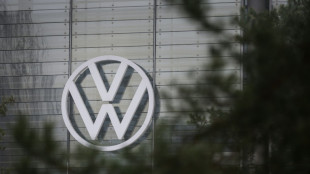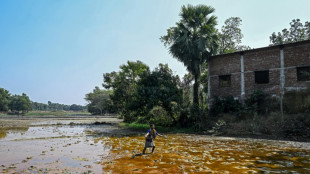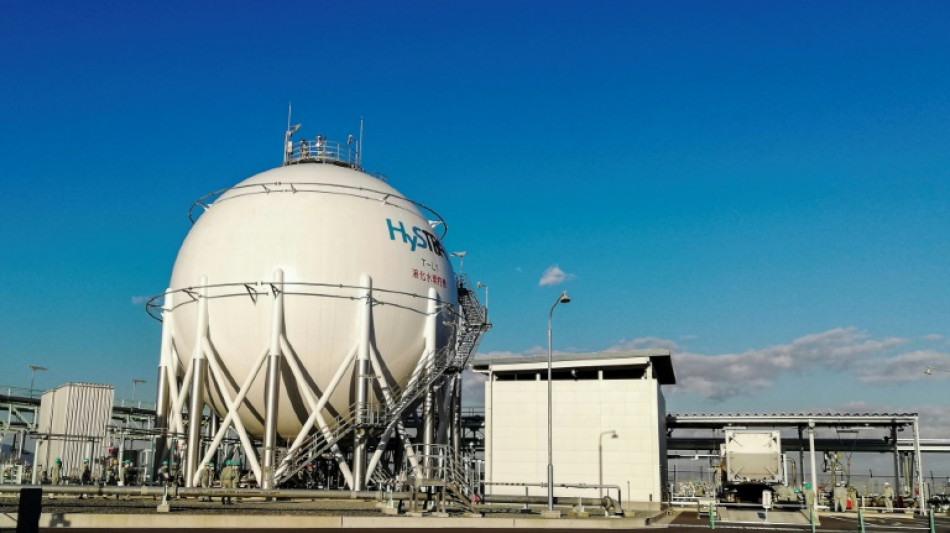
-
 Trump set to unleash 'Liberation Day' tariffs
Trump set to unleash 'Liberation Day' tariffs
-
Boeing chief to acknowledge 'serious missteps' at US Senate hearing

-
 Real Madrid hold Real Sociedad in eight-goal thriller to reach Copa del Rey final
Real Madrid hold Real Sociedad in eight-goal thriller to reach Copa del Rey final
-
Nuno salutes 'special' Elanga after stunning strike fires Forest
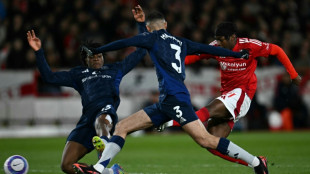
-
 PSG survive scare against Dunkerque to reach French Cup final
PSG survive scare against Dunkerque to reach French Cup final
-
Sundowns edge Esperance as crowd violence mars quarter-final

-
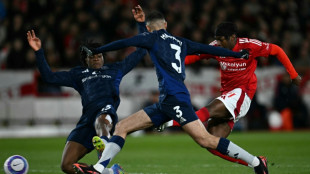 Nottingham Forest beat Man Utd, Saka scores on Arsenal return
Nottingham Forest beat Man Utd, Saka scores on Arsenal return
-
Elanga wonder-goal sinks Man Utd as Forest eye Champions League berth

-
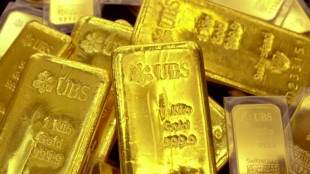 Stock markets mostly advance ahead of Trump tariffs deadline
Stock markets mostly advance ahead of Trump tariffs deadline
-
US movie theaters urge 45-day 'baseline' before films hit streaming
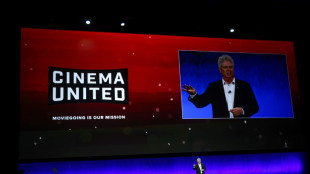
-
 Saka scores on return as Arsenal beat Fulham
Saka scores on return as Arsenal beat Fulham
-
Third-division Bielefeld shock holders Leverkusen in German Cup

-
 Ball-blasting 'Torpedo bats' making waves across MLB opening weekend
Ball-blasting 'Torpedo bats' making waves across MLB opening weekend
-
Newsmax shares surge more than 2,000% in days after IPO
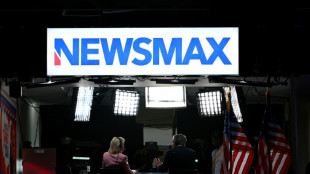
-
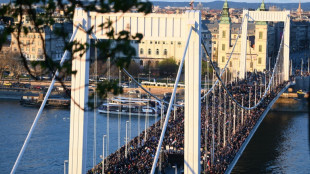 Thousands of Hungarians protest against Pride ban law
Thousands of Hungarians protest against Pride ban law
-
GM leads first quarter US auto sales as tariffs loom
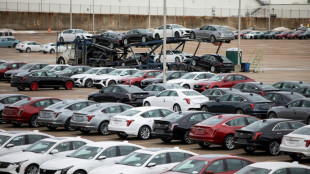
-
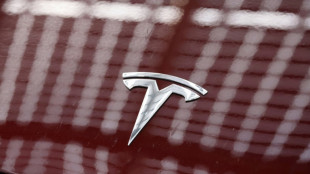 Tesla sales tumble in Europe in the first quarter
Tesla sales tumble in Europe in the first quarter
-
No 'eye for an eye' approach to US tariffs: Mexico

-
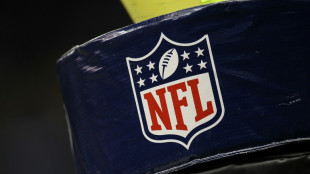 NFL club owners back dynamic kickoffs, delay tush push vote
NFL club owners back dynamic kickoffs, delay tush push vote
-
Trump 'perfecting' new tariffs as nervous world braces
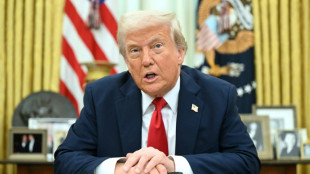
-
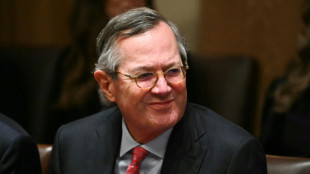 Trump nominee says to press UK on Israel arms
Trump nominee says to press UK on Israel arms
-
French court says Le Pen appeal ruling could come before presidential vote

-
 The battle to control assets behind Bosnia crisis
The battle to control assets behind Bosnia crisis
-
Prabhsimran powers Punjab to IPL win over Lucknow

-
 Mass layoffs targeting 10,000 jobs hit US health agencies
Mass layoffs targeting 10,000 jobs hit US health agencies
-
Tiger's April Foolishness: plan to play Masters just a joke

-
 Myanmar quake toll passes 2,700, nation halts to honour victims
Myanmar quake toll passes 2,700, nation halts to honour victims
-
Turkish fans, artists urge Muse to cancel Istanbul gig
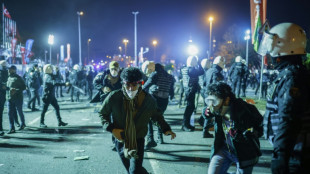
-
 US seeks death penalty for accused killer of insurance CEO
US seeks death penalty for accused killer of insurance CEO
-
UK govt moves to block sentencing guidelines for minority defendants

-
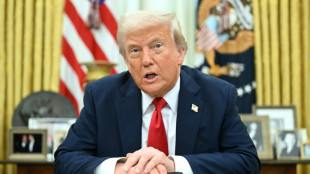 Trump puts world on edge as 'Liberation Day' tariffs loom
Trump puts world on edge as 'Liberation Day' tariffs loom
-
Swedish journalist jailed in Turkey kept 'isolated': employer
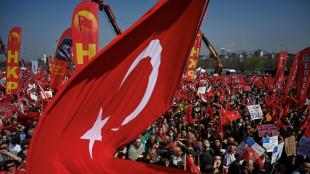
-
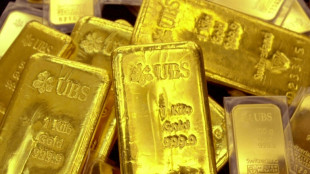 Stock markets advance ahead of Trump tariffs deadline
Stock markets advance ahead of Trump tariffs deadline
-
Gulf between Everton and Liverpool has never been bigger, says Moyes
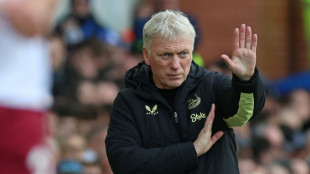
-
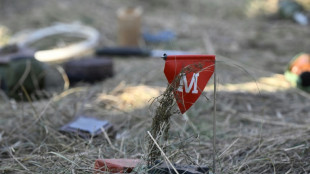 Finland to withdraw from anti-personnel mine ban treaty
Finland to withdraw from anti-personnel mine ban treaty
-
UK vows £20 million to boost drone and 'flying taxi' services

-
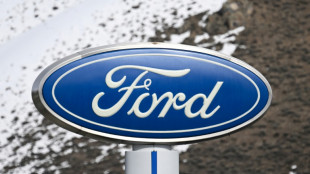 Ford's US auto sales dip in first quarter as tariffs loom
Ford's US auto sales dip in first quarter as tariffs loom
-
Digging for box office gold, 'A Minecraft Movie' hits cinemas
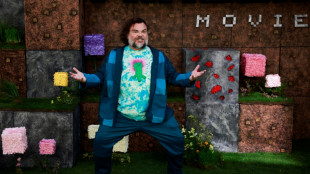
-
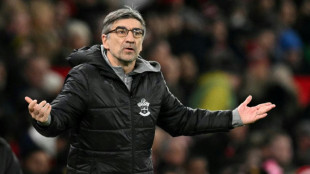 Southampton boss Juric desperate to avoid Premier League 'worst team' tag
Southampton boss Juric desperate to avoid Premier League 'worst team' tag
-
Thailand rescue dogs double as emotional support

-
 Five takeaways from Marine Le Pen verdict
Five takeaways from Marine Le Pen verdict
-
Stock markets split ahead of Trump tariffs deadline
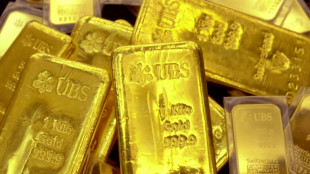
-
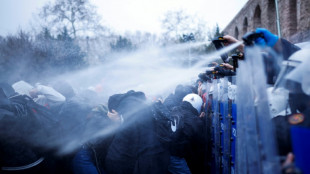 Turkish fans, artists urge Muse to cancel Istanbul gig over protest dispute
Turkish fans, artists urge Muse to cancel Istanbul gig over protest dispute
-
Former captain Edwards named new England women's cricket coach
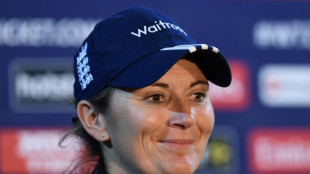
-
 Haaland ruled out for up to seven weeks: Man City boss Guardiola
Haaland ruled out for up to seven weeks: Man City boss Guardiola
-
UK Supreme Court opens car loans hearing as banks risk huge bill
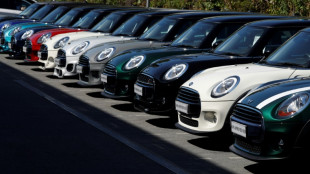
-
 Haaland ruled out for up to seven weeks: Guardiola
Haaland ruled out for up to seven weeks: Guardiola
-
Trophies are what count: Barca's Flick before Atletico cup clash
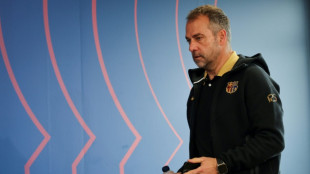
-
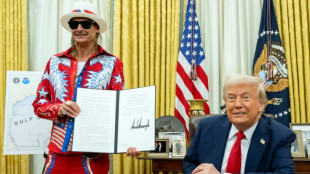 Trump signs executive order targeting ticket scalping
Trump signs executive order targeting ticket scalping
-
Eurozone inflation eases in March as tariff threat looms
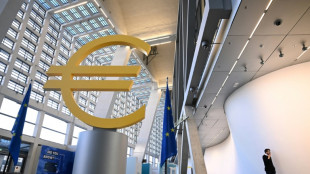

Japan-Australia flagship hydrogen project stumbles
Japan wants to become a hydrogen fuel leader to meet its net-zero goals, but one blockbuster project is hanging in the balance over questions about its climate credentials.
The Hydrogen Energy Supply Chain (HESC) is billed as a billion-dollar attempt to ship liquid hydrogen from Australia to Japan.
However, cold feet about the project in Australia means HESC will source hydrogen from Japan to meet a 2030 deadline for its demonstration phase.
Hydrogen sounds promising on paper: while fossil fuels emit planet-warming greenhouse gases, burning hydrogen creates only water vapour.
But it has not yet lived up to its promise, with several much-hyped projects globally struggling to overcome high costs and engineering challenges.
Hydrogen's climate credentials also depend on how it is produced.
"Green hydrogen" uses renewable energy, while "blue hydrogen" relies on fossil fuels such as coal and gas, with carbon-capture technology to reduce emissions.
"Brown hydrogen" is produced by fossil fuels without any carbon capture.
The HESC project aims to produce blue hydrogen in the Australian state of Victoria, harnessing abundant local supplies of lignite coal.
With the world's first liquid hydrogen tanker and an imposing storage site near Kobe in Japan, HESC had been touted as a flagship experiment showcasing Japan's ambitions for the fuel.
HESC says it aims to eventually produce enough hydrogen to "reduce about 1.8 million tonnes per annum of CO2 from being released into the atmosphere".
Japan's energy sector emitted 974 million tonnes of CO2 from fuel combustion in 2022, according to the International Energy Agency (IEA).
- 'Strong opposition' -
Japan's government pledged 220 billion yen (now $1.4 billion) to HESC's current "commercial demonstration" phase, which has a completion deadline of 2030.
But to meet this deadline, the project will now source hydrogen in Japan.
That has been blamed on cold feet among Australian officials concerned about the project's environmental payoff.
A spokesman for Japan's Kawasaki Heavy Industries, one of the companies behind HESC, said the decision to shift production to Japan was taken "chiefly because of delay in procedures on the Australian side".
The Victoria government did not respond to repeated requests for comment, though Australian officials have told local media that the move was a Japanese "commercial decision".
Australia's cooling interest in the project is due to "strong opposition" from environmental activists and energy experts opposed to carbon capture and storage, said Daisuke Akimoto of Tokyo University of Information Sciences.
"The main problem the project faces is the lack of approval of the blue hydrogen project by the Victorian government," Akimoto said.
Kawasaki said it has not yet decided what type of hydrogen it will procure in Japan and downplayed the project's challenges.
"We are very positive" about HESC and "there is no change" to the goal of building a new supply chain, the spokesman said, declining to be named.
- 'Evidence gap' -
However, sourcing the hydrogen locally leaves "a critical evidence gap at the middle of the project" -- proving carbon capture and storage work -- explained David Cebon, an engineering professor at the University of Cambridge.
That is "difficult and challenging and not being done successfully anywhere", Cebon said.
Kawasaki has said it will continue "feasibility studies" for the HESC project, but Cebon believes it will "quietly die", partly because of the cost of shipping hydrogen to Japan.
To be transported by sea as a liquid, hydrogen needs to be cooled to -253 degrees Celsius (-423.4 Fahrenheit) -- an expensive, energy-intensive process.
"I think wiser heads in the government just realised how crazy it is," said Mark Ogge from the Australia Institute think-tank.
Japanese energy company Kansai Electric has separately withdrawn from a different project to produce "green" hydrogen in Australia.
A company spokesman declined to comment on reports that the decision was due to ballooning costs.
- 'It will take decades' -
Resource-poor Japan is the world's fifth largest single-country emitter of carbon dioxide.
It already produces some hydrogen domestically, mostly using natural gas and oil or nuclear power, although this is limited and expensive.
Some experts are sanguine about HESC's challenges.
Noe van Hulst, a hydrogen advisor to the IEA, said it was important to take the long view.
"Pilot projects are undertaken to test innovations in practice: learning-by-doing," he told AFP.
"Yes, it is hard to develop a low-carbon hydrogen market and it will take decades," as with wind and solar energy, van Hulst said.
Solar in particular has seen costs plummet and uptake soar far beyond initial expectations and at greater speed.
And for now, "there isn't really an alternative (to) decarbonise these hard-to-electrify sectors like steel, cement, ships and planes", van Hulst added.
H.E.Young--AMWN
